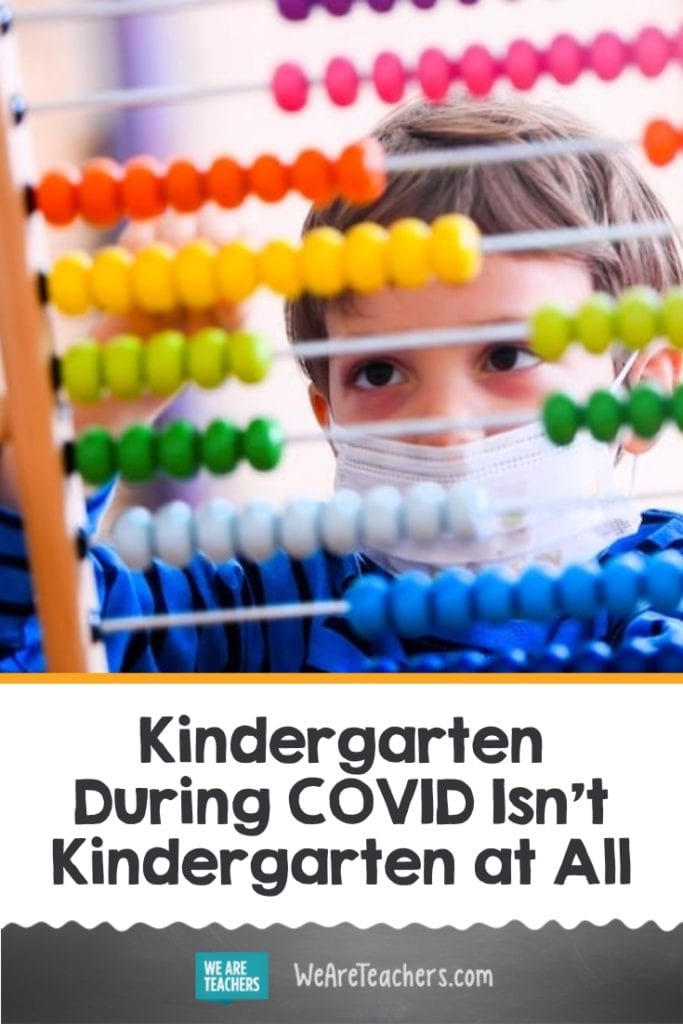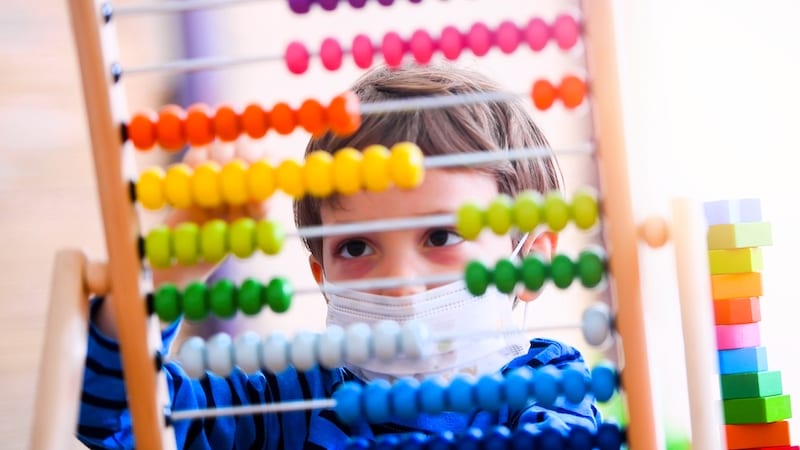I’m no fan of recent changes to make kindergarten more academic. I think it’s a move in the wrong direction. But now the COVID-19 pandemic has made a bad situation worse. Kindergarten should be a joyful and exciting adventure. With increased screen time, plus bans on everything from singing to sharing, it’s become something altogether different this year. Frankly, kindergarten during COVID doesn’t resemble anything I recognize as kindergarten at all.
Virtual kindergarten misses the point
When Friedrich Froebel designed the first kindergarten (literally “garden of children” in German), he imagined a place where children would be nurtured and tended like flowers by a caring adult. His educational philosophy centered around four pillars: free self-expression, creativity, social participation, and motor expression. It’s hard to imagine how any of those could be addressed in an online environment, at least not to the extent they would be in person. Plus, the purpose of kindergarten is to give kids the best possible start to their school career and encourage them to want to learn more. I just don’t see that kind of inspiration coming from behind a screen.
[contextly_auto_sidebar]
Kinders need hands-on help
Unfortunately, during the pandemic, in-person learning isn’t much of an improvement on virtual. In order to meet the goals of kindergarten, 5 and 6 year-olds need the close guidance of an adult, but social distancing makes that difficult. Circle time requires the proximity of the children to the teacher and the learning materials. Adjusting a little one’s pencil grip means putting your hand over theirs. Most kids this age are still learning to zip and button, and they often need an assist. And kindergarteners are an emotional bunch who often rely on a hug or a pat on the back to be able to calm down and return to the important work of learning. None of that is possible when your teacher has to stay six feet away from you.
Safety measures disrupt social-emotional learning
Developing social skills and awareness as well as working on self-control are a big part of kindergarten learning. Because that social-emotional learning is the foundation of academic learning. How are young children supposed to learn how to cooperate, make friends, or share if they’re sitting at desks carefully spaced apart with a cubby full of their individual supplies? There’s also the issue with masks. We know they make it hard for kids to learn phonics, but they also make it difficult to learn to read another person’s emotions. I worry that we’re looking at an entire generation who may know their letters and numbers but can’t even regulate themselves, much less work with others.
I’m not arguing that these measures aren’t necessary to protect our children and prioritize public health. I also don’t want to take away from the heroic efforts of kindergarten teachers who, despite seemingly insurmountable challenges and lack of resources, have always made magic happen. But I am mourning the kindergarten of years gone by. I’m sad for this group of kids who will start their educational journeys like this. And I wish it was different.
How do you feel about kindergarten in the era of COVID? Share your thoughts in our WeAreTeachers HELPLINE group on Facebook.
Plus, why kindergarten students are increasingly burned out.

